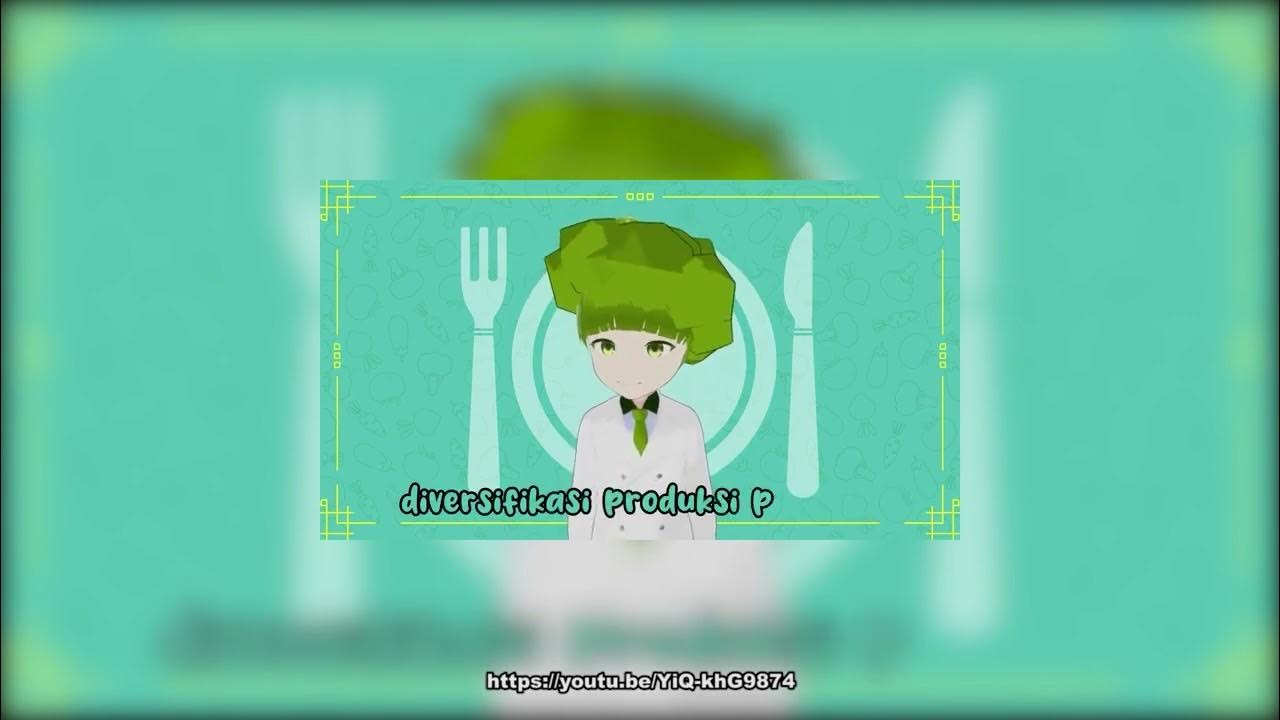Jutaan Ton Limbah Pisang Dibuang Di Hutan, Beberapa Tahun Kemudian Mengejutkan Dunia.
Summary
TLDRThis video script highlights Uganda's heavy reliance on bananas, both as a staple food and an economic asset. It explores the country’s challenges with banana waste, including environmental pollution and lack of proper disposal systems. However, through innovative solutions, Ugandans are turning banana waste into valuable resources, such as natural fertilizers, textiles, and even job opportunities for the youth. The script draws comparisons to Indonesia, suggesting that banana waste management could be a sustainable opportunity for both countries. The story encourages a shift in perspective, viewing banana waste not as garbage, but as a resource for economic growth and environmental preservation.
Takeaways
- 😀 Uganda is heavily reliant on bananas, with over 75% of its population depending on them as a staple food, similar to how rice is vital in Indonesia or corn in Mexico.
- 😀 Bananas play a crucial economic role in Uganda, contributing to 28% of the nation's revenue and helping in the export of bananas to countries like the UK, Germany, and Canada.
- 😀 Uganda produces about 10 million tons of bananas annually, making it the largest banana producer in Africa and the second-largest in the world, after India.
- 😀 The banana plant generates a lot of waste, including peels, leaves, and stems, which account for up to 80% of the plant's weight.
- 😀 The banana waste problem in Uganda has become an ecological challenge, as waste accumulation in landfills contributes to environmental pollution.
- 😀 Banana waste, when discarded in forests, naturally decomposes and enriches the soil, acting as organic fertilizer that improves plant growth.
- 😀 Banana fibers from the stems are being used in Uganda for creating textiles, crafts, and eco-friendly products like bags, wallets, and vegan leather alternatives.
- 😀 Startups in Uganda, like TFAT, have partnered with farmers to process banana waste, providing extra income for farmers and creating new employment opportunities for youth.
- 😀 The banana fiber industry is helping to reduce youth unemployment in Uganda by offering training and jobs, with over 400 young people trained in crafts for the tourism industry.
- 😀 The Ugandan government is addressing the challenges of banana diseases by researching genetically modified bananas that are resistant to disease and drought, which could provide long-term solutions for farmers.
Q & A
What makes Uganda unique in terms of banana production?
-Uganda is the largest producer of bananas in Africa and the second-largest in the world, only behind India. It produces around 10 million tons of bananas annually, making it heavily reliant on this crop for food and economic activity.
How do Ugandans use bananas in their daily life?
-Bananas are deeply integrated into Ugandan culture and diet. They are consumed in large quantities, with each person averaging around 440 to 660 pounds per year. Bananas are used in various forms including cooked dishes, fermented products, snacks, and even as therapeutic food to combat malnutrition.
What are some environmental issues related to banana waste in Uganda?
-Banana waste in Uganda, including peels, stems, and unfit fruit, often ends up in landfills or is discarded improperly. This waste not only adds to pollution but also contributes to environmental degradation when it decomposes, releasing methane, a harmful greenhouse gas.
What potential solutions are emerging to address banana waste in Uganda?
-Farmers in Uganda have started using banana waste as organic fertilizer, which helps improve soil quality and promotes plant growth. Additionally, banana fibers are being processed into textiles and other eco-friendly products, offering a way to recycle banana waste and create economic opportunities.
How are banana fibers being utilized in Uganda?
-Banana fibers are processed into various products like textiles, eco-friendly bags, wallets, and even vegan leather alternatives. A startup named TFAT collaborates with farmers to create products, offering income opportunities and generating jobs, particularly for the youth.
What economic impact does the banana industry have in Uganda?
-Bananas significantly contribute to Uganda's economy, accounting for about 28% of the national income. The banana industry also supports local livelihoods, provides food security, and generates export revenue, with Uganda exporting bananas to countries like the UK, Germany, and Canada.
What challenges do Ugandan farmers face in managing banana waste?
-One of the main challenges is the lack of an effective waste management system. With limited access to reliable electricity in rural areas (only 2-3% of the rural population has stable electricity), farmers struggle to process banana waste efficiently, relying instead on harmful disposal methods.
How has banana waste management affected local forests in Uganda?
-Farmers have begun using nearby forests as dumping grounds for banana waste. Over time, this waste has broken down and enriched the soil, resulting in greener and more fertile forests, which unexpectedly benefits local ecosystems.
How is Uganda addressing banana crop diseases and pest problems?
-Uganda faces challenges with banana diseases and pests, especially since 97% of global bananas come from a single variety, the Cavendish, which is highly vulnerable. Scientists in Uganda are working on developing genetically modified bananas to be more resistant to diseases and droughts.
Can Uganda's approach to banana waste management inspire other countries?
-Yes, Uganda's innovative approach to banana waste management, including turning waste into valuable products and improving soil quality, could serve as a model for other countries. It highlights how agricultural waste can be transformed into economic and environmental solutions.
Outlines

This section is available to paid users only. Please upgrade to access this part.
Upgrade NowMindmap

This section is available to paid users only. Please upgrade to access this part.
Upgrade NowKeywords

This section is available to paid users only. Please upgrade to access this part.
Upgrade NowHighlights

This section is available to paid users only. Please upgrade to access this part.
Upgrade NowTranscripts

This section is available to paid users only. Please upgrade to access this part.
Upgrade Now5.0 / 5 (0 votes)





